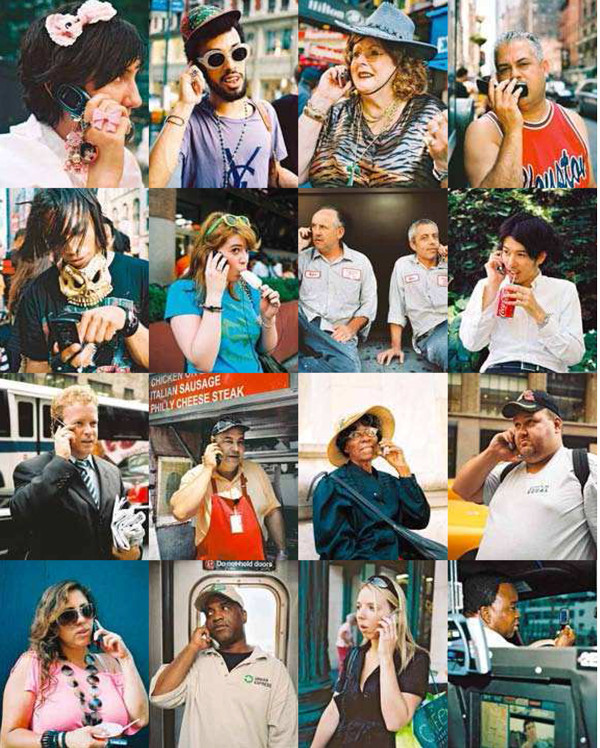Privacy today isn’t about building walls around our personal lives; it’s about escaping the constant noise of everyone else’s. While technology offers tools to enhance our personal space, a growing tide of digital intrusions diminishes the quality of public life. It’s not about being a digital Luddite; it’s about recognizing when technology oversteps its welcome and becomes a persistent irritant.
 Man looking annoyed in public
Man looking annoyed in public
Consider airport TVs blaring daytime television to a sea of mostly indifferent travelers. Year after year, airport after airport, this sonic assault subtly erodes the travel experience. Or think of software “upgrades” that render perfectly functional programs obsolete, forcing users into bloated, less efficient alternatives. Remember WordPerfect 5.0 for DOS? For writers, it was a dream – elegant, efficient, and focused on writing. Now, it’s a relic, intentionally sidelined by feature-heavy behemoths like Word. The digital world often feels like a forced march towards unnecessary complexity and unwanted features. It’s a world where even refusing to adopt the latest software standard is seen as an act of rebellion, a refusal to join the “Word world.”
But these are minor frustrations compared to the pervasive impact of the cell phone. A mere decade ago, cities like New York offered public spaces where unspoken social contracts reigned. Respect for shared space meant not broadcasting personal calls to strangers. Cell phones were still somewhat novel, viewed by some as status symbols or even social crutches. The late 1990s saw a cultural shift from nicotine to cellular addiction. The cigarette pack in a pocket morphed into a phone. The solitary smoker became the phone-engrossed walker, lost in a private bubble in public. The sonic pollution replaced smoke pollution, but the underlying issue remained: a self-absorbed minority imposing their habits on a captive majority in shared spaces. In those early days, it was still possible to hope that public restraint might prevail, that cities wouldn’t become havens for phone addicts sleepwalking through life, oblivious to their surroundings.
That hope, of course, was dashed. The cell phone’s triumph was absolute and swift. Initial complaints about its misuse in public spaces faded into background noise. Token gestures like “quiet cars” on trains and polite signs in restaurants proved insufficient. Cellular technology became a dominant force, its social costs largely ignored in the relentless march of “progress.” Criticism became “uncool,” dismissed as the grumblings of the out-of-touch.
Yet, the frustration remains. Drivers stuck behind someone chatting away in the passing lane while oblivious to the traffic flow understand this frustration. But commercial culture normalizes this behavior, even encourages it. We are bombarded with messages suggesting that we are the problem if we’re annoyed, that we’re missing out on the fun of “unlimited minutes” and constant connectivity. Why aren’t we joining in, tuning out the world, and immersing ourselves in our own phone bubbles?
The problem is that social ineptitude doesn’t magically improve when criticism is silenced. It often escalates. A prime example is the shopper glued to their phone during a checkout transaction. The scenario is often jarringly familiar: a privileged individual, lost in a call, barely acknowledging the service worker facilitating their purchase. While expecting effusive gratitude from a cashier might be unrealistic, basic human courtesy shouldn’t be. Ignoring someone’s existence while they are directly serving you is a profound social discourtesy. And while some cashiers may become desensitized, many are visibly bothered by this blatant disregard. The phone-absorbed shopper, like the oblivious driver, remains blissfully unaware of the social friction they create. Often, these are the customers who, despite a small purchase, will opt for the slowest, most cumbersome payment method, all while continuing their phone conversation uninterrupted.
However, this erosion of public civility does have a paradoxical upside. In these shared moments of annoyance, fleeting micro-communities of fellow sufferers emerge. A shared eye-roll with another driver stuck in traffic, a knowing glance exchanged with a cashier – these small, silent acknowledgments offer a sense of solidarity. In a world increasingly fragmented by technology, these shared frustrations, these moments of unspoken agreement, can be a small, unexpected comfort. It’s a far cry from the simple joy of connection that a song like “I Just Called to Say I Love You” evokes, but in the cacophony of modern life, even shared annoyance can be a form of connection.

